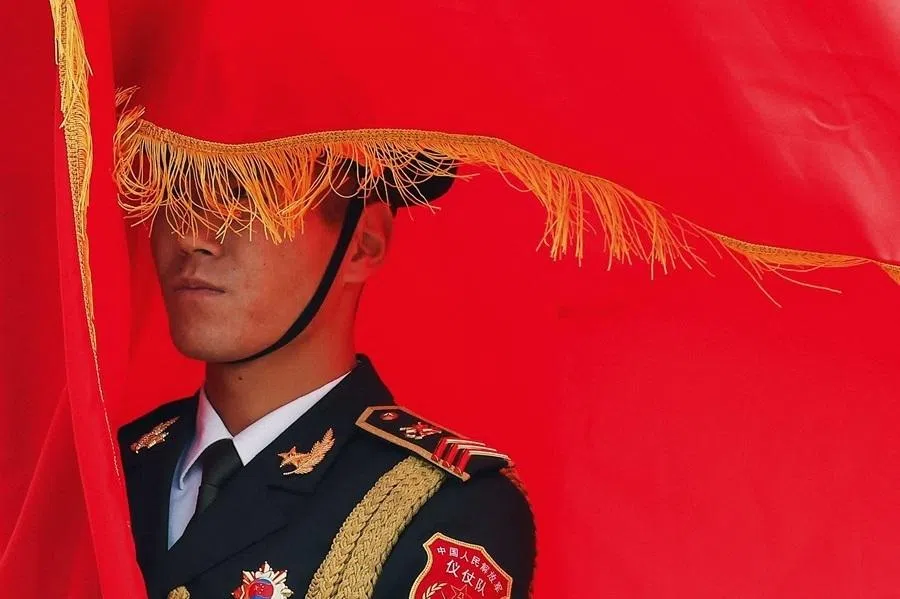India, France and Japan join hands to counter China's influence in Sri Lanka
Sri Lanka's recent high-level diplomatic engagements with India, France and Japan highlighted the island nation's importance in the ongoing great power rivalry in the Indo-Pacific region. After obtaining an IMF bailout with the assistance of these nations and dealing with the fallout of the pro-China Rajapaksa family, is the new Sri Lankan administration adopting a more Western and India-oriented vision?
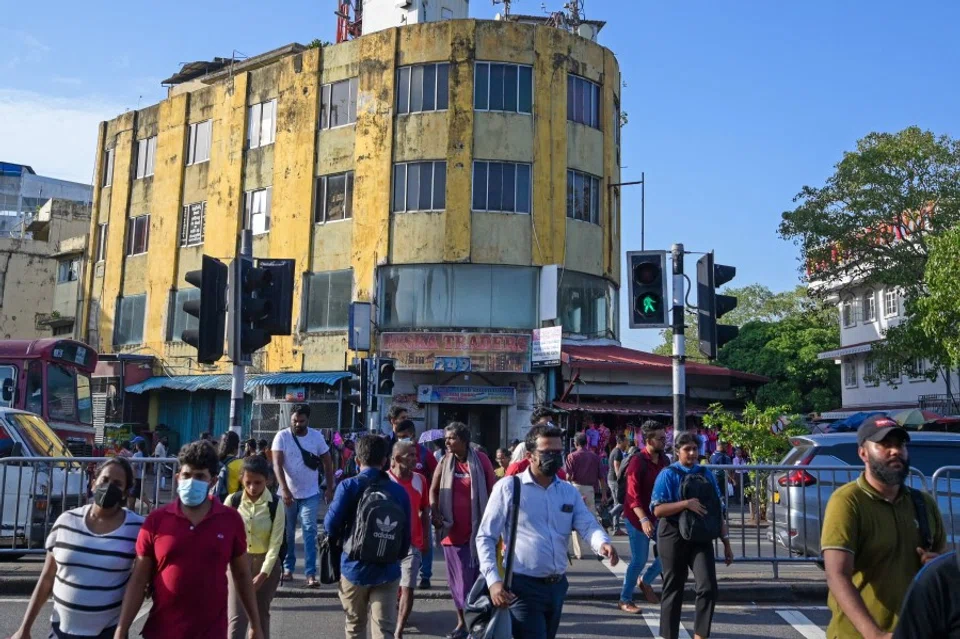
Sri Lanka's geostrategic importance in the Indo-Pacific region is seeing a new impetus, as is evident from the recent visits to the island nation by French President Emmanuel Macron and Japanese Foreign Minister Yoshimasa Hayashi. The main actors in the Indo-Pacific region paid these visits after Sri Lankan President Ranil Wickremesinghe's recent trip to India.
Joint efforts
Sri Lanka's high-level diplomatic engagements with India, France and Japan happened within the last two weeks of July, highlighting its importance in the ongoing great power rivalry in the Indo-Pacific region.
Emmanuel Macron - the first-ever French president to visit the island nation in the last 75 years of their bilateral ties - stopped over in Sri Lanka for less than two hours. Still, it highlights the growing French interest in the Indian and Pacific Oceans. In his tweet, Macron noted, "Sri Lanka and France are two Indian Ocean nations that share the same goal: an open, inclusive and prosperous Indo-Pacific."
On a similar note, the visiting Japanese Foreign Minister Hayashi "expressed his desire to continue to actively cooperate with Sri Lanka, which is located at a strategic juncture along the sea lanes of the Indian Ocean and is an important partner in realising a "Free and Open Indo-Pacific (FOIP)". India, too, has been echoing a similar vision of the Indo-Pacific. However, for all three, China is the main challenge in the Indo-Pacific region.
The other factor lies in the change of political leadership in Sri Lanka last year - the fallout of the powerful Rajapaksas who controlled and ran a family-led cabinet and had a close bond with China.
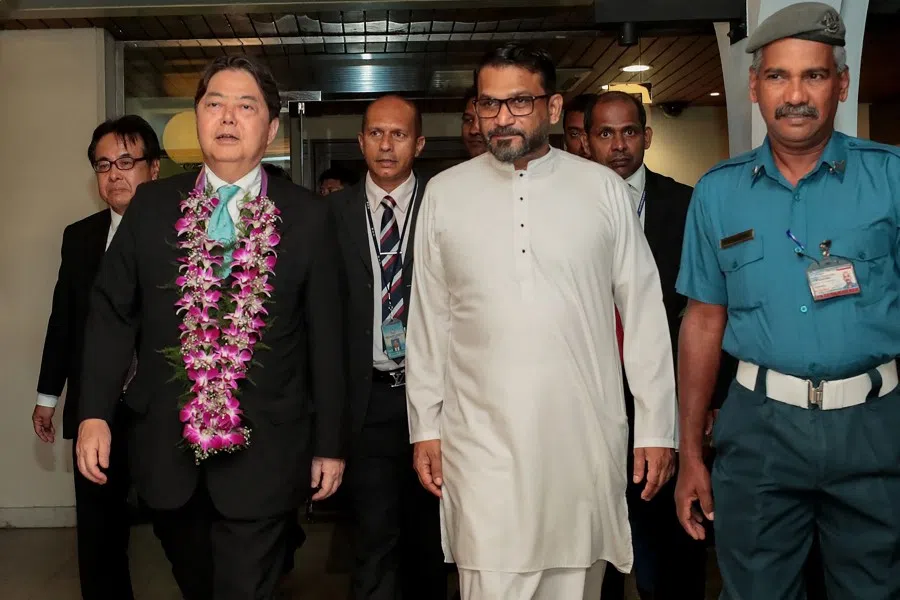
Until recently, Sri Lanka has avoided referring to the Indo-Pacific vision of Quad or France to avoid annoying China. However, Colombo appears to be adopting a more Western and India-oriented perspective in light of China's harsh stance on loosening debt-restructuring measures.
Economic bailout and strategic gain
What unexpected event led Sri Lanka to shed its pro-China geostrategic image and provide a red-carpet welcome to all three countries? Undoubtedly, it will be economic assistance from the three countries to Sri Lanka, which helped it secure an International Monetary Fund (IMF) bailout. As a result, the IMF Executive Board approved a 48-month Extended Fund Facility of about 3 billion U.S. dollars to support Sri Lanka's economic policies and reforms in March this year.
The other factor lies in the change of political leadership in Sri Lanka last year - the fallout of the powerful Rajapaksas who controlled and ran a family-led cabinet and had a close bond with China. The Rajapaksas did not take seriously the economic risks of defaulting on foreign debt totalling more than US$50 billion. In the current scenario, when IMF, India, Japan and France offer some relief to Sri Lanka on the economic front, the island nation wants to avoid the follies the Rajapaksas made by giving too much of a free hand to China.
Countering China's influence
The "India-Sri Lanka Economic Partnership Vision", released during the Sri Lankan president's visit to India on 21 July, places a strong emphasis on expanding trade and economic connections between the two nations. This underlines India's intention to oppose China's Belt and Road Initiative, which is growing and has attracted substantial investments in Sri Lanka, prompting worries about debt traps and geopolitical ramifications.
India certainly intends to increase its engagement in Sri Lanka by countering China's influence and promoting Sri Lanka's economic growth. Since the financial crisis, India has extended economic assistance amounting to US$4 billion to Sri Lanka, considerably weakening anti-India voices.
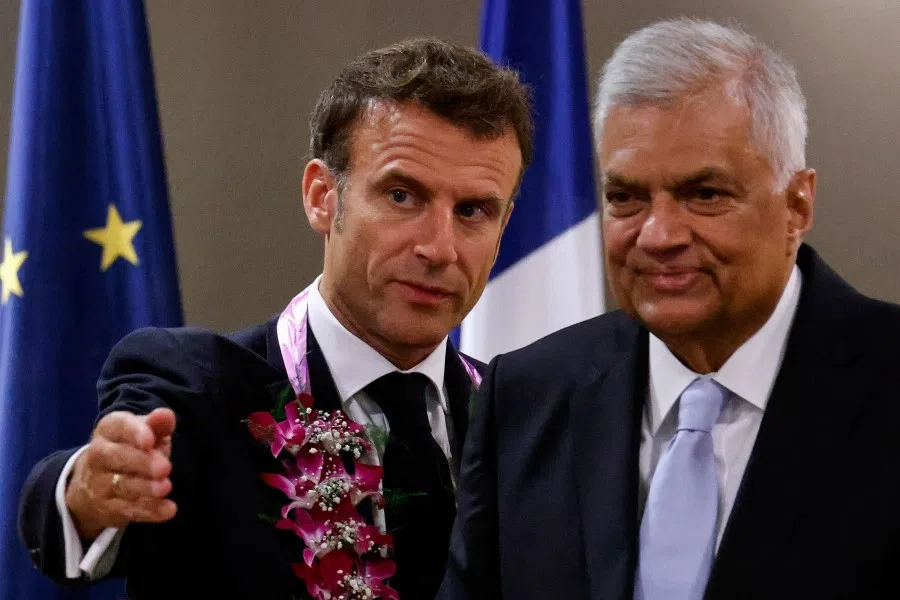
At the same time, Macron's trip to Sri Lanka demonstrates the strengthening of bilateral ties and emphasises the significance of Sri Lanka to France's Indo-Pacific policy. As a member of the European Union, France is concerned about upholding a rules-based order in the Indo-Pacific and curbing China's seemingly aggressive activities there.
France's commitment to assisting Sri Lanka in debt restructuring reflects its desire to help Sri Lanka shift away from its China-centric foreign policy. It increases its cooperation in several areas, including climate change and maritime security.
Three, the meeting between the foreign ministers of Japan and Sri Lanka highlights the importance of Sri Lanka as a vital crossroads in the Indian Ocean trade routes. Japan's "Free and Open Indo-Pacific" strategy aims to advance regional development, stability and peace.
Japan's objective of ensuring transparent and sustainable economic growth in the Indo-Pacific is aligned with Sri Lanka's membership in the Indian Ocean Rim Association and Japan's expectations for advancement in debt restructuring.
Sri Lanka's unilateral actions had dented its ties with Delhi and Tokyo. However, because of their backing for Sri Lanka's economic rescue, the geopolitical environment in Colombo is now more accommodating and receptive to their concerns and interests.
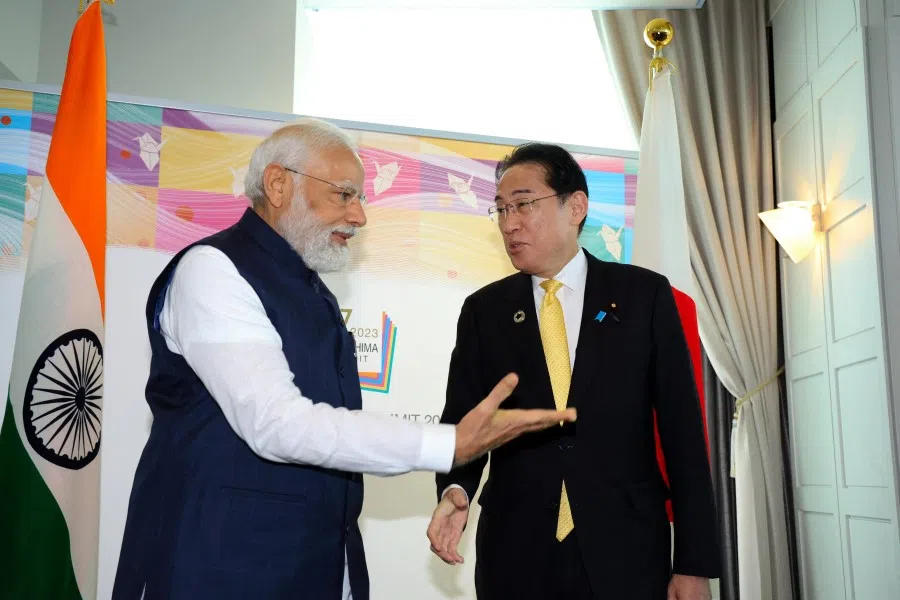
In addition to its bilateral engagements with Sri Lanka, Japan sees India as an important factor in Sri Lanka. In March this year, Japanese Prime Minister Fumio Kishida, in a policy speech delivered in India, released Japan's New Plan for a "Free and Open Indo-Pacific Together with India, as an Indispensable Partner" where he noted that "it is essential that Sri Lanka's debt restructuring advances fairly and transparently. Japan will collaborate closely with India and contribute to stability."
What may seem like a smooth line of communication between Japan and Sri Lanka today was critically impacted in 2021 after Colombo unilaterally cancelled the East Container Terminal of Colombo Port project that was to be developed by India and Japan jointly. They had signed a trilateral agreement with Sri Lanka, which the Rajapaksa administration cancelled reportedly due to Chinese pressure. Sri Lanka's unilateral actions had dented its ties with Delhi and Tokyo. However, because of their backing for Sri Lanka's economic rescue, the geopolitical environment in Colombo is now more accommodating and receptive to their concerns and interests.
How would China respond?
To challenge China's growing influence and promote an open and inclusive Indo-Pacific, India, France and Japan have come together in Sri Lanka. Their concerns about China's expanding regional influence are reflected in their strategy, which emphasises fostering connectivity, economic cooperation and marine security.
These states are working with Sri Lanka as part of a larger initiative to create a rules-based order in the Indo-Pacific and counterbalance China's assertiveness. Undoubtedly, India, Japan and France would like to improve their geopolitical positions in the area and promote their individual ideas of a free and open Indo-Pacific by assisting Sri Lanka's growth and helping it move away from a dependency on China. So far, China has not responded to the official statements from Sri Lanka mentioning Indo-Pacific during Macron and Hayashi's visit, but they likely will.



![[Big read] When the Arctic opens, what happens to Singapore?](https://cassette.sphdigital.com.sg/image/thinkchina/da65edebca34645c711c55e83e9877109b3c53847ebb1305573974651df1d13a)

